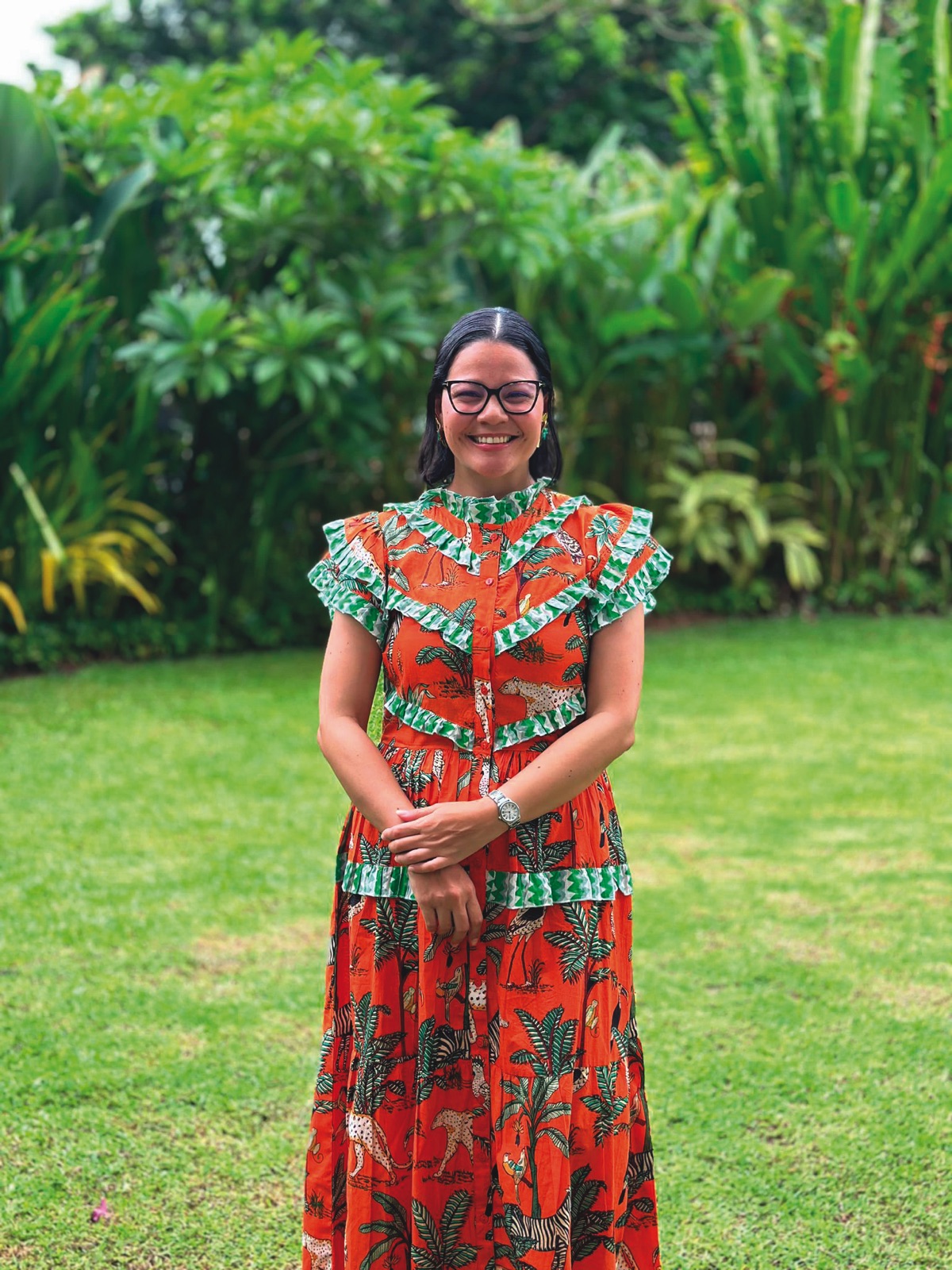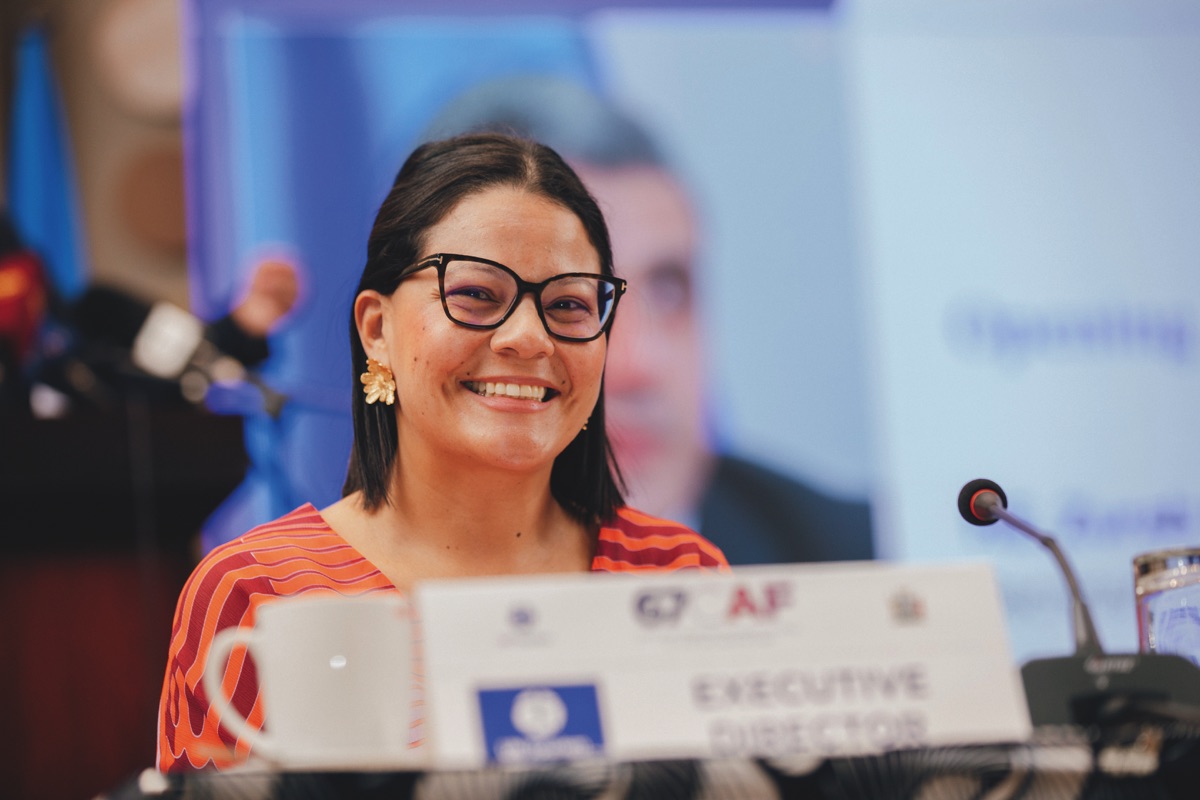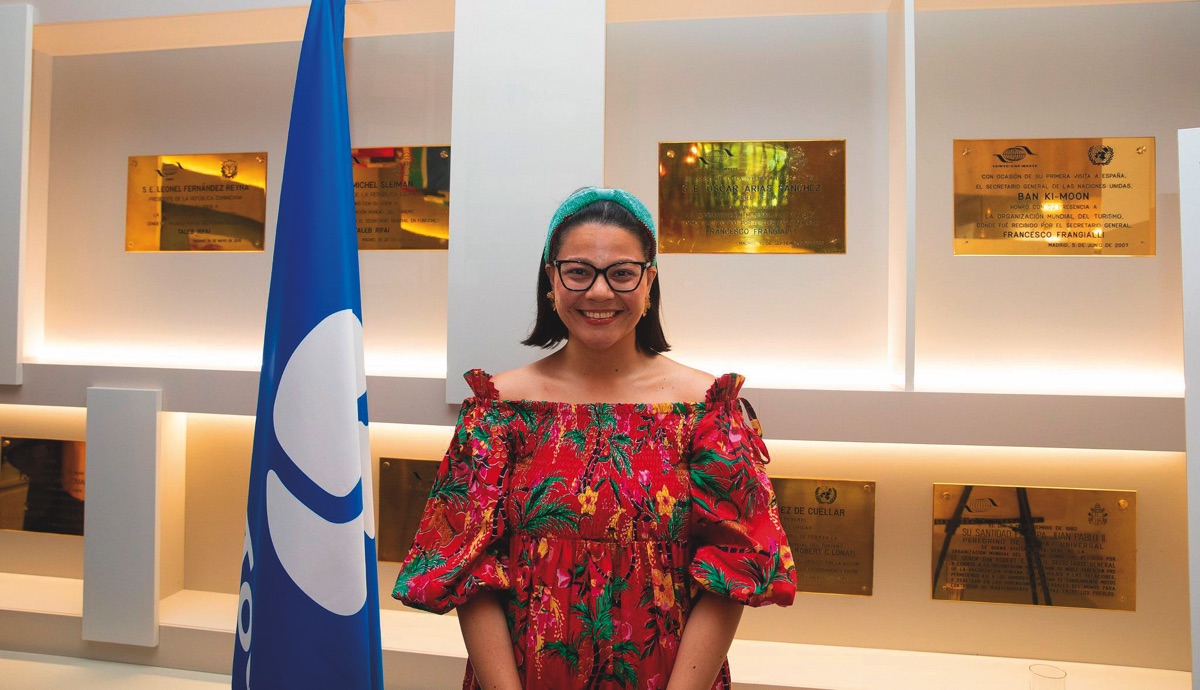Tourism is the most human sector of all

Ms. Natalia Bayona, UN Tourism Executive Director
Text: Martina Hošková and M.Zisso; Photo: Archive
What do you feel you have learned from your time, back in 2006, when you began your career in the team creating the first international tourism campaign for your home country, “Colombia – the risk is wanting to stay”?
What fond memories I have of that time! I thoroughly enjoyed those moments, and, looking back, I believe I learned a great deal from that experience. I was the youngest manager responsible for promoting the country, but I also started there at a very young age!
My first steps in ProColombia were as an intern when I was very young, and I was awarded as the best trainee of that promotion. Then, right after that, I started with my first contract. I remember thinking that I was working in something that I liked and enjoyed, and year by year I continued growing, learning, and opening doors for tourism in the country, which at the time was something unexplored.
I learned many things during those years. One of them is that finding what makes a city or a community different from the others, and working on letting the world know why they are special is the basis for boosting the tourism sector in a certain place. I also learned that working with local communities is key to developing the tourism sector, providing them with educational resources, and supporting innovation projects. This also requires support from the institutions, both at local and national levels, to generate frameworks that promote tourism investment, as well as encourage entrepreneurship.
I have walked this path because tourism has been my passion, along with innovation and education. What I didn’t know at that time was that these three things combined, and added to my determination, has been what has brought me here, to my current position at UN Tourism.
Now, with all these things I have learned, I continue to be so passionate about tourism, the most human economic sector of all, and thinking that education and innovation are instrumental for change.
I also believe that tourism must be understood as a state policy, because it is a sector that can drive development and influence many others, not only culture sector, it is also required in order to support security, conservation of heritage and the ecosystem, etc. Therefore, for adequate development, it is necessary to have, as I said, public policies that favour it, as well as private initiatives willing to invest.

Ms. Natalia Bayona, UN Tourism Executive Director
You are passionate about tourism. Are you a tourist too?
These days I am travelling so much that I have to admit I am not sure about the exact number of countries that I have visited by now. More than 100 countries, for sure. And in all of them, I find thousands of reasons to revisit and stay longer.
My list of visited countries is growing month by month due to my professional commitments. However, I will continue travelling because I find it one of the best ways to open our minds and learn about others.
Does such extensive international travel, required as part of your current position, still fit your lifestyle?
Six years ago, when I came to UN Tourism to create the Innovation, Education, and Investments Department, I had already lived in several countries, and had experienced being surrounded by different cultures and nationalities. And I have always loved to travel.
All this, together with education and my passion for travelling, gives me an international mindset. We also must take into account that we live in a global and interconnected society right now, so thanks to technology we can do things that we never imagined, and travel in different ways. People and information are travelling faster and further than ever before.
What is the best travel adventure you have been on?
This job allows me to get to know many places and different people, understanding how they live, and how tourism can transform their region and give new development opportunities. When I think about adventures, I am lucky, because I remember many anecdotes.
Nevertheless, perhaps my best adventure is the work that I do day-by-day at UN Tourism. This job is challenging, because you need to travel a lot, but tourism opens minds and brings cultures together. It is a vibrant sector that is so alive that it is always changing, with new ideas, new scenarios, and, of course, new challenges. Therefore, working in such an exciting sector makes every day an adventure.
Can you share one of your more unusual experiences?
When someone travels as much as I do, anecdotes abound. But I remember one case that was quite intriguing, and that also happened to me in my homeland. It was a few years ago, we were in the middle of a mega event in Cartagena, Colombia, and I had to authorize a power cut for a few minutes to be able to have a perfect rider for the Colombian artists. They were going to present and perform in front of more than one hundred tourism ministers from all over the world, and they wanted to be sure that everything was going to be perfect. At the end of the day, we succeeded. That was in 2007, and I still remember it as an intense day.
What do you find is the most difficult part of being a UN Tourism Executive Director?
Being an Executive Director of a United Nations specialized agency is an honour, a challenge, and, above all, a great responsibility, which I have accepted with enthusiasm and the desire to work to bring innovation as the primary tool for the changes that tourism needs.
I am also incredibly grateful for this role because I believe that this appointment means that the work done together with the team, over the past six years, as the head of the Department of Education, Innovation, and Investments has been relevant.
It shows that not only this work deserves to continue but should be amplified since these are three key areas for the development of the tourism sector.
On one hand, we need adequate, diversified investments in key areas in order to develop all the potential that tourism has at all levels, both in the sector itself and its workers, and for the different countries. On the other hand, it is needed, in order to support entrepreneurs and to ensure that innovation and technologies help us move forward and remain at the forefront. Finally, it is necessary to achieve a skilled workforce with a higher education.
Training will allow not only the prospects of tourism as a sector to expand, but also the professional growth, on a personal level, of those who are part of this wonderful sector in which we work.

Ms. Natalia Bayona, UN Tourism Executive Director
Can you give us a closer look at your duties as Executive Director of UN Tourism?
The work in the executive management consists of overseeing key structural areas for the organization in order to achieve UN Tourism’s objectives in the most efficient way. The underlying idea is to create added value serving the tourism sector.
Right now, under my coordination are the five regional directorates (The Americas, Europe, Asia Pacific, Africa, and the Middle East), the Department of Innovation, Education, and Investments, the Department of Communications and the Technical Cooperation. We are working to always keep our finger on the pulse of the sector, anticipate trends, and adapt to the challenges that the actors who are part of it must face. That’s why, at the last General Assembly, we at UN Tourism proposed a new investment framework based on investing in People, Planet, and Prosperity.
In People, by promoting education. This part is very important, considering that tourism is the main employer of young people. Over 50% of the workers in the sector are 25 years-old or younger, and it is estimated that, by 2030, around 882,000 jobs in the tourism sector per year will require vocational training.
In Planet, through more sustainable practices to achieve Prosperity, counting on innovation as a catalyst. This is because technology, which has always been very present in the tourism sector, is also the gateway to new ideas. That’s why, via UN Tourism, we encourage and support entrepreneurship with various initiatives, such as our contests for startups. We have already had over twenty contests, and this has given rise to an innovation ecosystem that brings us much joy.
Do your professional duties allow you enough free time to enjoy other hobbies besides your passion for travelling?
As I said, education is one of my passions too. Therefore, I love to study. But I also have a taste for fashion. For many years, I have loved to meet emerging fashion designers and support them. It is those designers who create purposeful concepts and do what has been called ‘slow fashion’, and who tend to seek quality, authenticity, and durability, who particularly catch my attention.
I like to recognize these profiles because, as I was saying, this link with education extends to all levels. I am a mentor to young people and women who want to grow in their professional careers, as well as a startup mentor.
And, when it comes to a personal level, I must say that physical exercise is integrated into my daily life. I therefore try to walk at least seven kilometres a day.
It is a fantastic exercise to stay healthy, but it also helps you think better, and, moreover, you enjoy the landscape and discover new places.
You have been successful in becoming a powerful influential woman. What piece of advice can you give to the next generation to help them also fulfil their ambitions?
As a mentor, my first advice is about learning. Education is the most powerful and transformative tool that we have. With education, we can transform not only someone’s life but also society. So, educate yourself as much as you can, learn things every step of the way, and never lose your curiosity and the desire to learn. And, when it comes to my beloved sector, I will add another piece of advice for the next tourism leaders: see Tourism as what it is – the most human sector of all.
Because of that, it is important to focus on the three pillars that we have talked about before – People, Planet, and Prosperity. Investing in people through education is mandatory, and there is also a need for impulse green investments to develop countries and communities, as well as having a sector aligned with sustainable development goals. Last but not least, working in innovation in order to increase entrepreneurship and help entrepreneurs develop their potential could contribute towards creating a great landscape for the tourism sector.

